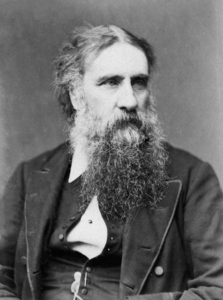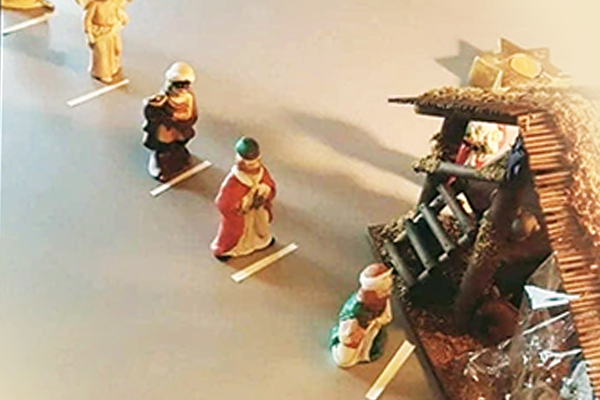Dedication: “In thanksgiving for Marian Frank’s questioning faith.”

Following Brenton Dickieson’s blog A Pilgrim in Narnia I found a Friday teatime group committed to the Inklings and friends. I have read C.S. Lewis, J.R.R. Tolkien, George MacDonald, and Charles Williams since college, and Dickieson’s blog encourages explorations. The tea group devoted one Friday afternoon to reading poems (on Zoom). I chose to read George MacDonald’s A Broken Prayer.
“A Broken Prayer” is a very long poem where the founding father of fantasy fiction resists an easy answer to living a life of faith, and is pulled back and forth between joy and despair. MacDonald wrote in an age where editors didn’t cut three paragraphs into one. I offered to the teatime curator to cut the poem to a shorter length. He said he would prefer no cuts, so I pressed my Shakespearean actor husband into reading the Despair voice and I took Joy. (Named speaking parts were my own adaptation.) We attempted to dramatize, to embody, the inner polarities of MacDonald’s faith as he went back and forth by stanza.
Example of Despair voice:
O Lord, my God, how long
Shall my poor heart pant for a boundless joy?
How long, O mighty Spirit, shall I hear
The murmur of Truth’s crystal waters slide
From the deep caverns of their endless being,
But my lips taste not, and the grosser air
Choke each pure inspiration of thy will?
Example of Joy voice:
Make me a forest
Of gladdest life wherein perpetual spring
Lifts up her leafy tresses in the wind.
Lo, now I see
Thy trembling starlight sit among my pines,
And thy young moon slide down my arching boughs
With a soft sound of restless eloquence!
And I can feel a joy as when thy hosts
Of trampling winds, gathering in maddened bands,
Roar upward through the blue and flashing day
Round my still depths of uncleft solitude.
His struggle exemplifies the father’s prayer to Jesus: “I believe. Help Thou my unbelief.” (Mark 9:24) McDonald’s poem goes on, and on and on, creating the feeling of the internal text of MacDonald’s daily life year after year.
MacDonald does not settle on Joy. The poignant final stanza embraces being “islanded on unseen points, hanging ‘twixt thee and chaos.”
Heal all my wanderings, take me by the hand,
And lead me homeward through the shadows.
Let me not by my willful acts of pride
Block up the windows of thy truth, and grow
A wasted, withered thing, that stumbles on
Down to the grave with folded hands of sloth
And leaden confidence.
The turmoil, the inner work, is fully embraced rather than to be filled with “leaden confidence”. He will work on.
Learnings:
1) Winter Christian
A participant commented that MacDonald was a Winter Christian. I was unfamiliar with this term and looked it up the next morning. He is exactly a member of that tribe! The most helpful resource was a blog post titled, Summer and Winter Christians by Richard Beck on his Experimental Theology site.
Beck posts an X/Y model:
A Winter Christian is High Communion and High Complaint. A Winter Christian is to be welcomed, to share communion.
2) Testing The Worth of Complaints
Would George MacDonald be welcome in your church? In your life? Many churches and believers, perhaps of any faith, often criticize the lamenter, the struggler, about their God and faith – a “doubting” Thomas. Many managers of people complain (!) about employee complainers. Many parents and children complain about their family members. We complain about neighbors, about the government, about…
“A Broken Prayer “ is in a long tradition of High Complaint; many of the Psalms offer examples. See my blog on Laments and Complaints. Doubt, complaint, and lamentation are struggles with the Divine; the individual is in communion with the Holy Ones. Complaining workers or family members have not given in to cynicism or disengaged. Here is a person who still hopes for a better environment or communion or achievement.
The test to determine Winter believers from complainers is the degree of their will to stay engaged in the struggle. Like George MacDonald, do they seek to remain in communion, to connect, to offer themselves into the answer?
How about you? Are you a Winter Believer?





